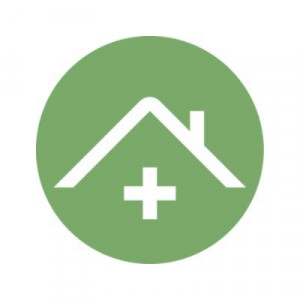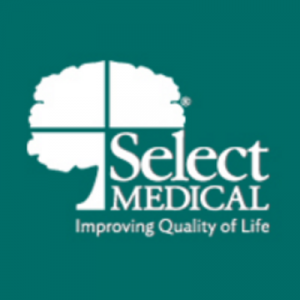Assignment for 26 or 39 weeks, includes benefits and living stipend for those more than 100 miles outside Tucson.
If you want to be challenged in a new energetic and innovative patient centered 19 to 27 bed unit that employs a multidisciplinary team approach for excellent safe and compassionate care join our team. Unit 900 is an adult medical surgical floor that cares for adult patients who are acutely ill with a wide variety of medical conditions or are recovering from surgery. Conditions including, but not limited to, diseases or disorders of the pulmonary, gastrointestinal, renal, endocrine, circulatory, and neurological systems, as well as infectious diseases, and autoimmune disorders.
SUMMARY:
The clinical nurse leader is responsible for the assessment, coordination, implementation, and evaluation of the delivery of safe and effective patient-centered care. The Clinical Nurse Leader will facilitate and mentor others to grow professionally and advance their knowledge and skills. In addition, the Clinical Nurse Leader will continuously assess unit needs to ensure adequate resources for current and upcoming shifts by collaborating with other departments, clinical and nonclinical, to coordinate admissions, transfers, and discharges of patients in a timely manner. Finally, the Clinical Nurse Leader will demonstrate professionalism at all times and will uphold standards of practice by holding team members accountable for continued compliance.
ESSENTIAL FUNCTIONS:
Complies with legal, hospital and departmental policies, procedures and position requirements.
1. Values: We will incorporate our Values into every aspect of our organization. Our values will provide the essence of who we are and how we provide the best possible customer service.
- We have heart
- We respect diversity and individuality
- We honor body, mind and spirit
- We work hard for our patients and each other
- We are committed to professionalism and excellence
- We listen, we learn, we grow
- We are welcoming and friendly
- We practice kindness in all our relationships
- We reach out as teachers and as leaders
- Integrity
- We tell the truth
- We are responsible in how we use our resources
- We have the courage to uphold our values
2. Competency
- Attends required classes: Unit Skills fair, One mock code per quarter, ACLS, CPR, PALS (if required)
- Completes and turns in annual competency evaluation
- Keeps individual education profile current
- Demonstrates an understanding of regulatory requirements and professional practice guidelines
- Has a working knowledge of organizational policies and procedures
- Shows competence in the performance of department-specific skills in order to be a resource and mentor for others in the department
- Demonstrates an active involvement in leadership activities within the past year (E.g. CNL development program, active participation in evaluations, PCI involvement)
- Promote shared governance by actively participating in unit based council and/or hospital council.
3. Performance Improvement
- Reports significant events such as near misses, adverse events, patient/family complaints, and any situation that affects the safe delivery of patient-centered care in a timely manner
- Is proactive, rounds with team members on the unit, and identifies opportunities for improvement; completes real time correction.
- Ensures that handoff communication occurs any time there is a change in caregivers on the unit during shift and at start/end of shifts
- Assigns and delegates patient care tasks as appropriate, considering staff members’ level of nursing experience, competency, and knowledge
- Delegates tasks to unlicensed support staff as outlined by state board regulations and facility policies as appropriate to the clinical situation
- Participates in multidisciplinary rounds and make recommendations when appropriate
- Assists in monitoring staff performance, behaviors, and competency for performance reviews and reports information to manager
- Ensures that all infection control precautions and procedures are followed in the department
- Drives one unit based process improvement initiative
- Must attend and participate in 25% of monthly PCI trainings.
- Run debrief with team after any codes and or significant events, etc. Actively participates in unit SWARM activities.
- Joint Commission tracers/environment of safety checks
4. Accountability
- Is accountable for completion of work including documentation, validates accuracy every shift.
- Prioritizes care and completes tasks during shift
- Works with staff to prepare for oncoming shift by preparing full report and stocking/tidying patient care areas
- Practice/demonstrates cost-effective behaviors: avoids unnecessary overtime, understands and implements staffing guidelines and flexes when appropriate, handles patient charges appropriately, uses supplies conscientiously (10)
- Assists other team members by providing direct patient care as needed
- Assigns and coordinates patient flow to deliver safe and effective patient-centered care
- Performs other specific department tasks as assigned by members of the department’s leadership team
- Rounds with patients and family members to ensure that needs are met and identifies opportunities for improvement
- Ensures that appropriate staffing levels meet patient care needs. Input hours into PMR tool to ensure department productivity standards met. Utilization of acuity tool to aid with staffing if applicable
- Monitors supplies and ensures that appropriate par levels meet patient care needs without causing waste
- Assists in ensuring that equipment is utilized carefully to avoid damage
- Able to deliver disciplinary action at the discretion and guidance of the nursing manager
- Real-time service recovery as needed for patient satisfaction and escalating if needed
5. Communication
- Communicates with all necessary units to coordinate care for patient
- Checks e-mail to stay current with hospital and unit communications each work shift.
- Attends 75% of staff meetings, participates on agenda topics
- Does not facilitate or tolerate negative communication or foul language
- Communication with staffing office and other departments to request staff and/or flex staff overages for oncoming shift
6. Professionalism
- Adheres to organizational policies and procedures. Adhere to TMC behavioral standards policy and hold staff accountable to them.
- Adheres to professional guidelines for practice such as state board of nurses, American Nurses Association (ANA) professional standards of care and ethical practice guidelines
- Collaborates with other departments in a professional manner as needed to provide patient-centered care
- Demonstrates effective communication, conflict resolution, team building, and leadership skills
- Participates in updating and upholding standards of practice and be a role model to others for maintaining standards of care. Participate in WOC rounding as needed
- Participate in peer interview process
ROLE SPECIFIC FUNCTIONS:
EP Coordinator:
Oversees EP area and coordinates with Cardiac Cath Lab lead to better evaluate staffing and schedule needs, training required, materials management, and provides recommendations for efficiencies.
Perioperative:
Identifies patients at high risk requiring advanced nursing judgment; utilizes holistic assessment, identifies relevant aspects of situations and determines the appropriate course of action to move patient/family, and staff towards expected outcome(s). Requires advanced life support certification (ACLS and PALS).
Rapid Response:
Provides oversight and training while participating in the rapid response, stroke, and code team responses for critical patient care. Maintains NRCPR Database and runs abstracts to evaluate performance for quality control and recommends improvements as required. Receives and reviews preceding critical care shift reports and floor nurse reports; makes complete rounds of all units, and notes patients' condition.
MINIMUM QUALIFICATIONS
EDUCATION: Graduation from a qualified, nationally-accredited nursing program.
EXPERIENCE: One (1) year of nursing experience in an acute care setting required. Two (2) years of nursing experience in an acute care setting preferred.
LICENSURE OR CERTIFICATION: Current RN licensure permitting work in the state of Arizona, Basic Life Support (BLS) certification required. Additional certifications may be required per department.
KNOWLEDGE, SKILLS AND ABILITIES:
- Knowledge of critical care techniques, tools and responses required to ensure optimal patient care.
- Knowledge of processes and procedures to follow during a rapid response, code, or stroke call.
- Some Positions: Knowledge of electrophysiology and cardiac cath lab procedures and best practices.
- Some Positions: Knowledge of surgery specialties and how to prepare, assess and provide post-operation patient care to ensure best practices are followed.
- Some Positions: Knowledge of chart abstraction, education and marketing for the Chest Pain, CHF and Stroke programs.
- Skill in evaluating performance and recommending improvements.
- Skill in developing training materials and educating staff in the proper responses for critical care issues.
- Skill in the use and maintenance of computer systems and programs, especially NRCPR, PC File and Folder, Word, EXCEL, e-mail and attachment capabilities, Outlook, and PowerPoint.
- Skill in communicating with staff involved in critical care, and physicians to ensure the proper care of patients.
- Ability to read and interpret documents such as safety rules, operating and maintenance instructions, and procedure manuals.
- Ability to complete routine reports and correspondence.
- Ability to listen and accurately interpret others’ communication or instructions to take appropriate action.
- Ability to speak and communicate effectively.
- Ability to define problems, collect data, establish facts, and draw valid conclusions.
- Ability to interpret an extensive variety of instructions and deal with several abstract and concrete variables.









